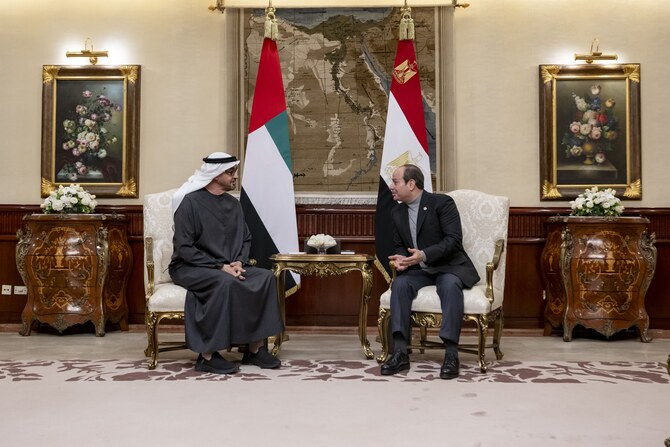ALGIERS: Algeria’s prosecutor general sought at an appeal hearing on Tuesday 10 years in prison for novelist Boualem Sansal, doubling his current sentence, an AFP journalist in the courtroom reported.
The dual Algerian French writer, whose case has been at the heart of a diplomatic row between Paris and Algiers, was sentenced to five years imprisonment on March 27.
A verdict is expected on July 1.
Sansal, 80, was arrested in November at the Algiers airport and has been detained since for undermining Algeria’s territorial integrity.
This came after he said in an interview with a far-right French media outlet that France unfairly ceded Moroccan territory to Algeria during the 1830-1962 colonial era.
The statement was viewed by Algeria as an affront to its national sovereignty and echoed a long-standing Moroccan claim.
On Tuesday, Sansal appeared before the judge without legal representation after authorities said he wished to defend himself.
“The Algerian Constitution guarantees freedom of expression and conscience,” he told the court during the roughly 20-minute hearing, seemingly in good health. “This makes no sense.”
Defending the remarks he made to French far-right media on Algeria’s borders, he said: “Fortunately, after independence in 1962, the African Union declared that inherited colonial borders are inviolable.”
Also questioned on some of his books, Sansal answered: “We are holding a trial over literature? Where are we headed?“
According to his relatives, Sansal has been undergoing treatment for prostate cancer, and many feared his health would deteriorate in prison.
French President Emmanuel Macron has urged his Algerian counterpart Abdelmadjid Tebboune to show “mercy and humanity” toward Sansal.
But Algiers has insisted that the writer has been afforded due process.
His conviction and sentence further frayed ties between Paris and Algiers, already strained by migration issues and Macron’s recognition last year of Moroccan sovereignty over the disputed territory of Western Sahara, which is claimed by the Algeria-backed pro-independence Polisario Front.
Charges against the writer include “undermining national unity,” “insulting state institutions,” “harming the national economy,” and “possessing media and publications threatening the country’s security and stability.”



























